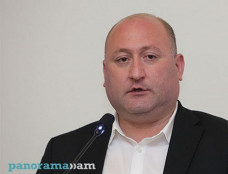
Arafat's body exhumed, tested for poison
Did Yasser Arafat die eight years ago of natural causes or was the 75-year-old Palestinian leader poisoned, as his widow believes?
According to CNN, that's the question forensic investigators from at least three nations are trying to answer by testing samples taken from Arafat's body, which was exhumed Tuesday and reburied a short time later.
Tests are being performed on those samples for the presence of polonium -- a toxic, radioactive element found on some of his personal belongings earlier this year.
For five decades, Arafat was the most prominent face of Palestinian opposition to Israel, first as the head of the Palestine Liberation Organization, which carried out attacks against Israeli targets, and later as the head of the Palestinian Authority.
The Palestinian Authority, which runs the West Bank, says it is convinced Israel is behind any poisoning of Arafat.
"We had nothing to do with it," Israeli government spokesman Mark Regev told CNN's Wolf Blitzer. "Those charges are ludicrous and it's conspiracy theories which, as you know, sometimes have legs of their own. But, as you know, there is no truth in it whatsoever."
French authorities -- responding to a request from his widow -- opened a murder inquiry into Arafat's death this year after high levels of polonium-210 were detected on Arafat's toothbrush, clothing and his keffiyeh, the trademark black-and-white headscarf he often wore. France opened the investigation partly because Arafat died there in 2004.
While France is leading the investigation, forensic experts from Switzerland and Russia took their own samples for independent analysis.
Arafat's widow, Suha, told CNN on Tuesday that she doesn't feel comfortable accusing a person or a country of poisoning her husband, but she wants the investigators to keep working. "I will tell you everybody is accusing Israel," she told CNN's Christiane Amanpour. "I can't just conclude without having all the proof in our hands."
Amanpour asked the widow whether she regrets turning down a chance to have her husband's body undergo an autopsy when he died. Suha said it never occurred to her to have one performed.
"Nobody asked me to do an autopsy," she said.
Palestinian Authority President Mahmoud Abbas subsequently approved the exhumation from Arafat's mausoleum in the Palestinian presidential compound in the West Bank city of Ramallah.
But the presence of high levels of polonium-210 on his belongings does not mean Arafat was poisoned, according to François Bochud, director of the Swiss institute that carried out the tests.
Some details in Arafat's medical records are not consistent with polonium poisoning, he explained, and "the only way to resolve this anomaly would be by testing the body."
Polonium-210 is not a radioactive substance that emits gamma particles, which can travel through walls at extremely high energies. Instead, as polonium-210 decays, it releases alpha particles, which can't even pass through a piece of paper.
But alpha particles are still dangerous. They travel short distances and retain a high amount of energy.
Newsfeed
Videos






























